第148章
He leaned his head back and closed his eyes; and like a child, crying, that forgets its grief in watching the sunlight percolate through the tear-dimmed films over the pupils, so Martin forgot his sickness, the presence of Ruth, everything, in watching the masses of vegetation, shot through hotly with sunshine that took form and blazed against this background of his eyelids. It was not restful, that green foliage. The sunlight was too raw and glaring. It hurt him to look at it, and yet he looked, he knew not why.
He was brought back to himself by the rattle of the door-knob.
Ruth was at the door.
"How shall I get out?" she questioned tearfully. "I am afraid."
"Oh, forgive me," he cried, springing to his feet. "I'm not myself, you know. I forgot you were here." He put his hand to his head. "You see, I'm not just right. I'll take you home. We can go out by the servants' entrance. No one will see us. Pull down that veil and everything will be all right."
She clung to his arm through the dim-lighted passages and down the narrow stairs.
"I am safe now," she said, when they emerged on the sidewalk, at the same time starting to take her hand from his arm.
"No, no, I'll see you home," he answered.
"No, please don't," she objected. "It is unnecessary."
Again she started to remove her hand. He felt a momentary curiosity. Now that she was out of danger she was afraid. She was in almost a panic to be quit of him. He could see no reason for it and attributed it to her nervousness. So he restrained her withdrawing hand and started to walk on with her. Halfway down the block, he saw a man in a long overcoat shrink back into a doorway.
He shot a glance in as he passed by, and, despite the high turned- up collar, he was certain that he recognized Ruth's brother, Norman.
During the walk Ruth and Martin held little conversation. She was stunned. He was apathetic. Once, he mentioned that he was going away, back to the South Seas, and, once, she asked him to forgive her having come to him. And that was all. The parting at her door was conventional. They shook hands, said good night, and he lifted his hat. The door swung shut, and he lighted a cigarette and turned back for his hotel. When he came to the doorway into which he had seen Norman shrink, he stopped and looked in in a speculative humor.
"She lied," he said aloud. "She made believe to me that she had dared greatly, and all the while she knew the brother that brought her was waiting to take her back." He burst into laughter. "Oh, these bourgeois! When I was broke, I was not fit to be seen with his sister. When I have a bank account, he brings her to me."
As he swung on his heel to go on, a tramp, going in the same direction, begged him over his shoulder.
"Say, mister, can you give me a quarter to get a bed?" were the words.
But it was the voice that made Martin turn around. The next instant he had Joe by the hand.
"D'ye remember that time we parted at the Hot Springs?" the other was saying. "I said then we'd meet again. I felt it in my bones.
An' here we are."
"You're looking good," Martin said admiringly, "and you've put on weight."
"I sure have." Joe's face was beaming. "I never knew what it was to live till I hit hoboin'. I'm thirty pounds heavier an' feel tiptop all the time. Why, I was worked to skin an' bone in them old days. Hoboin' sure agrees with me."
"But you're looking for a bed just the same," Martin chided, "and it's a cold night."
"Huh? Lookin' for a bed?" Joe shot a hand into his hip pocket and brought it out filled with small change. "That beats hard graft," he exulted. "You just looked good; that's why I battered you."
Martin laughed and gave in.
"You've several full-sized drunks right there," he insinuated.
Joe slid the money back into his pocket.
"Not in mine," he announced. "No gettin' oryide for me, though there ain't nothin' to stop me except I don't want to. I've ben drunk once since I seen you last, an' then it was unexpected, bein' on an empty stomach. When I work like a beast, I drink like a beast. When I live like a man, I drink like a man - a jolt now an' again when I feel like it, an' that's all."
Martin arranged to meet him next day, and went on to the hotel. He paused in the office to look up steamer sailings. The Mariposa sailed for Tahiti in five days.
"Telephone over to-morrow and reserve a stateroom for me," he told the clerk. "No deck-stateroom, but down below, on the weather- side, - the port-side, remember that, the port-side. You'd better write it down."
Once in his room he got into bed and slipped off to sleep as gently as a child. The occurrences of the evening had made no impression on him. His mind was dead to impressions. The glow of warmth with which he met Joe had been most fleeting. The succeeding minute he had been bothered by the ex-laundryman's presence and by the compulsion of conversation. That in five more days he sailed for his loved South Seas meant nothing to him. So he closed his eyes and slept normally and comfortably for eight uninterrupted hours.
He was not restless. He did not change his position, nor did he dream. Sleep had become to him oblivion, and each day that he awoke, he awoke with regret. Life worried and bored him, and time was a vexation.